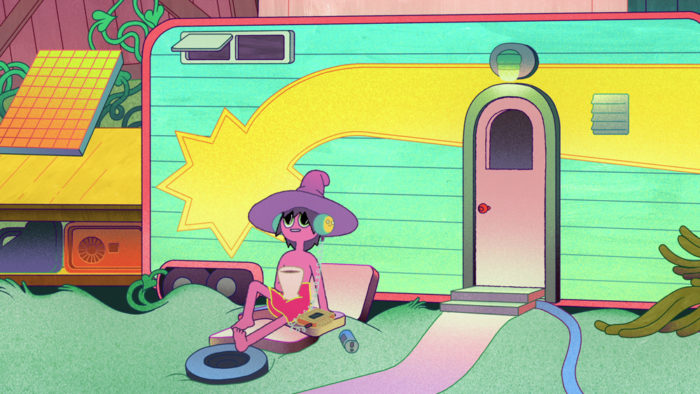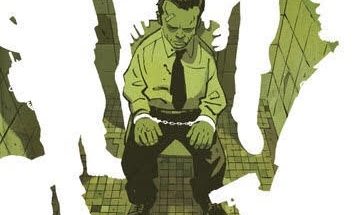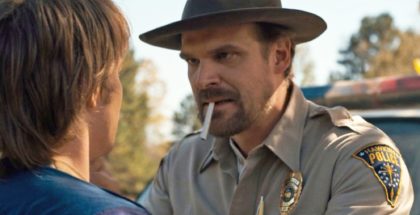Netflix UK TV review: The Midnight Gospel
David Farnor | On 20, Apr 2020
“You wanna do an interview for my spacecast? It goes into space.”
That’s the sound of Adventure Time creator Pendleton Ward heading to Netflix for new adult series The Midnight Gospel. The guy doing the asking? That would be Clancy, who spends his days going to visit other worlds via his multiverse simulator – a simulator that’s illegal in the futuristic world in which he lives. Arguing with his computer in a reclusive trailer home, he hunts for ice cream planets or plays with emoji packs before picking an avatar to fit in and beaming into the world of his choice – which he does by sticking his head in what looks a lot like a certain part of female anatomy.
If that sounds weird, wait until you see the rest of it. Each trip that Clancy takes is exactly that – the trippiest trip imaginable. The first episode introduces us to a zombie apocalypse where the world is being saved by the President of the United States who’s on the roof of the White House with a shotgun. In another episode, we join a troupe of clowns on their way to being slaughtered in a Soylent Green-esque dystopia. Yet another immerses us in a world of magic underwater, another in a prison for simulated people suffering from existential dread.
Each of these environments are populated by weird characters, outlandish creatures, vividly strange landscapes and endlessly odd events. Most of them involve death, some of them involve bloody violence, all of them are deeply unnerving in their sheer imaginative craziness.
And, while your retinas are melting with the spectacle of this bizarre odyssey, the whole thing is accompanied by conversations about mysticism, meditation, Buddhism, tantric states and the universe in general. These stem from Duncan Trussell’s Duncan Trussell Family Hour Podcast, and they elevate the show from a really weird animated trip to a really weird animated trip that makes you ponder existential concepts. The first episode’s dubious President posits that there is no such thing as a bad drug, just bad contexts within which drugs are taken. That’s a highly dubious notion, but it’s also a fitting description of the whole show, which defies categorising it into “good” or “bad”; watch this in the right mood and it can be an enlighteningly odd experience, watch it on a bad day and you may well be extremely creeped out. Those two extremes collide in the surprisingly moving finale, which sees Clancy visit his mum and talk about life, birth and rebirth. The concept of reincarnation comes around in cycles throughout the season, always circling back to the concept of learning to accept death as a way to make peace with life. That repeatedly echoing concern paves the way for a bold and boldly sentimental fusion of parent and child that’s quietly profound. The fact that it’s also accompanied by teddy bears in lab coats is both entirely irrelevant and precisely the point. Funny strange and funny ha ha, this deeply personal, deeply unsettling and deeply reflective spaced-out oddity is unlike anything else you’ll see on TV this life or the next.




















